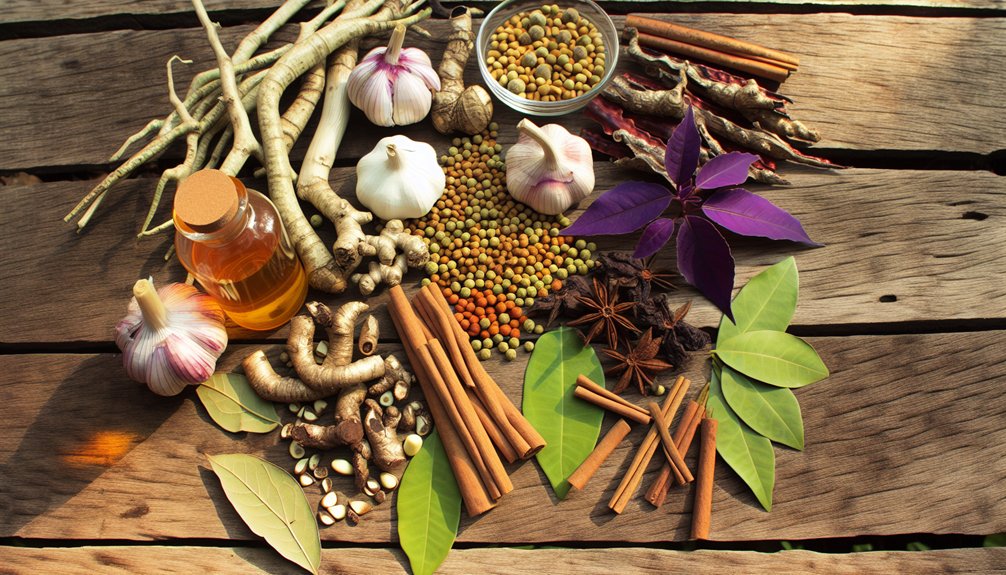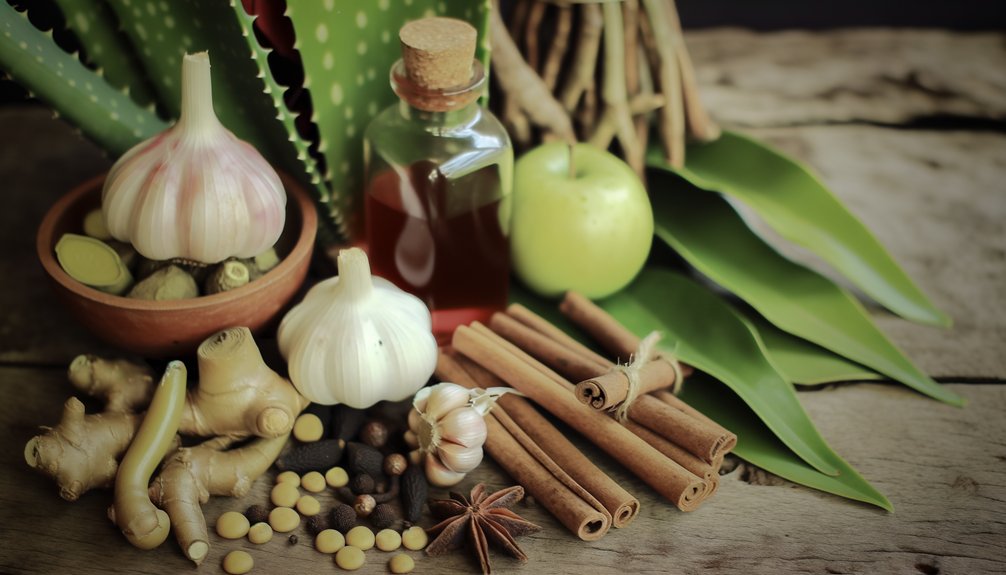Natural alternatives for insulin management in diabetes are gaining attention and can be quite promising. Herbs like cinnamon and garlic, along with plant compounds such as American ginseng and berberine, show potential in managing blood sugar levels. Many people find hope in these natural options, feeling less overwhelmed. With the right mix of functional foods and lifestyle changes, there’s a sense of possibility for a healthier journey. There’s much more to discover about these alternatives.

When it comes to managing diabetes, the journey can often feel overwhelming, like steering through a maze with no clear exit. Many people search for natural alternatives to help regulate their blood sugar levels. Among these alternatives are plant-derived compounds that show promising results in improving insulin sensitivity. For instance, Cassia semen, rhubarb, and aloe vera have been shown to reduce insulin resistance, offering hope to those struggling with diabetes.
Garlic, often a staple in many kitchens, contains allicin, a compound that not only boosts insulin secretion but also lowers cholesterol and blood glucose levels. Remarkably, its effects can rival some conventional medications. Other plants, such as bay leaf and Gymnema sylvestre, have also been linked to better insulin efficiency and significant reductions in HbA1c levels, making them worthy of consideration in a diabetic management plan. Additionally, American Ginseng has been shown to enhance insulin secretion, further supporting blood glucose regulation. Berberine supplements have demonstrated effectiveness comparable to metformin in controlling blood sugar levels.
Garlic and other natural herbs may significantly enhance insulin efficiency and support diabetes management.
Additionally, functional foods like fenugreek seeds and apple cider vinegar serve as powerful allies in controlling blood sugar. Fenugreek stimulates insulin release, while apple cider vinegar helps lower fasting blood sugar levels. The inclusion of high-fiber foods, such as barley, can further assist in lowering blood sugar and cholesterol levels. Mitochondrial dysfunction is known to be linked to insulin resistance, underscoring the importance of maintaining mitochondrial health in diabetes management.
Zinc, often overlooked, plays an essential role in supporting insulin receptor activity, and its deficiency can be common among diabetics. Other plants like cinnamon and clove oil extract exhibit potential for enhancing insulin sensitivity, adding a flavorful twist to meals while promoting health. Curiously, even coffee contains compounds that might help reduce the risk of type 2 diabetes.
In this intricate journey of diabetes management, these natural alternatives provide a glimmer of hope. While they may not replace traditional treatments, they can complement them, offering a more holistic approach to living well with diabetes. As individuals explore these options, the prospect of maneuvering their health maze becomes a little less intimidating, filled with potential avenues toward better management and brighter days ahead.
